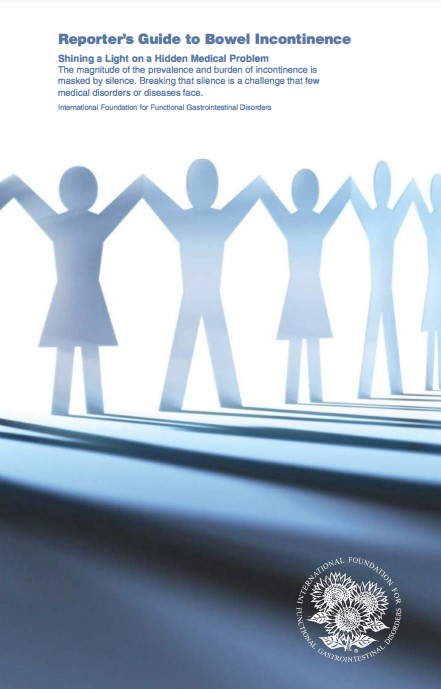IFFGD is dedicated to informing, assisting, and supporting people affected by gastrointestinal disorders. We have been working since 1991 to broaden understanding about gastrointestinal disorders and support research.
Loss of bowel control, or incontinence, is a condition which is surprisingly widespread yet masked by silence. It is often assumed that incontinence is a condition limited to the elderly. This is not true. Many otherwise healthy, active men, women and children live with incontinence. At least 6% of adults under the age of 40, in the community, are affected by bowel incontinence. These numbers dramatically increase in nursing homes, averaging around 45%.
Bowel incontinence is the involuntary leakage of liquid or solid stool. It is a chronic and unpredictable condition. Continence depends on properly functioning muscles and nerves in and around the rectum and anal cavity. Any condition that interferes with these complex mechanisms may result in incontinence.
Conditions that may contribute to incontinence:
- Childbirth
- Constipation
- Diarrhea
- Irritable bowel syndrome (IBS)
- Inflammatory bowel disease (IBD)
- Neurological disorders
- Pelvic or anal surgery
- Pelvic floor dysfunction
- Radiation treatments for certain cancers
- Spinal cord injury
- Stroke
We developed the Reporter’s Guide to Bowel Incontinence to provide writers, those working in media outlets, and other interested parties with accurate information helpful in covering or understanding this condition.

The Reporter’s Guide provides:
- Background information about bowel incontinence and its effects on sufferers and society
- Frequently asked questions
- A glossary of medical terms
- Resource references
- Suggested story ideas and reasons for writing about bowel incontinence
Go to Reporter’s Guide to Bowel Incontinence (pdf)
Learn more:
Visit our publication library for more free resources about functional GI and motility disorders









